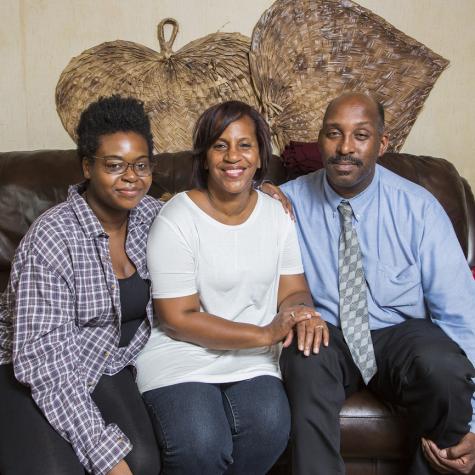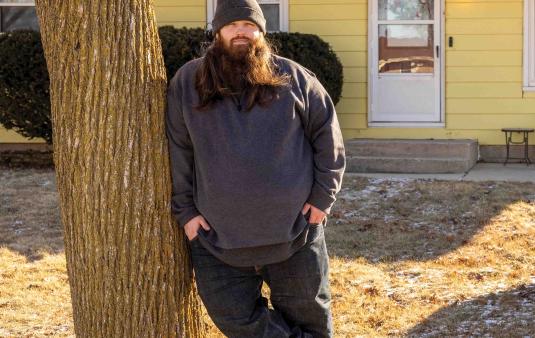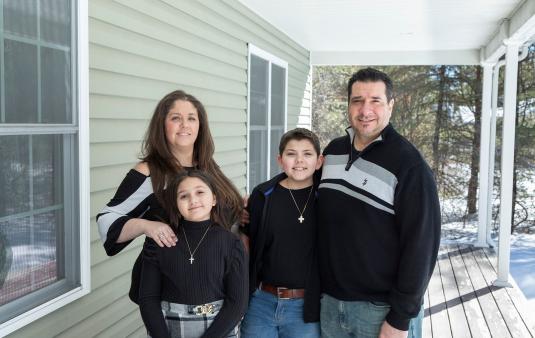How long does it take to foreclose on a home in Michigan?
Foreclosure is a complicated multistep process that allows mortgage lenders to repossess homes from homeowners who have missed payments on their mortgage loan. Michigan’s foreclosure process can take six months or longer.
What is the best way to avoid foreclosure in Michigan?
The first step for any homeowner facing foreclosure or eviction should be to contact a HUD-approved housing counselor to better understand your options. These services are typically free and offered by a local nonprofit.
BlueHub SUN may also be an option to prevent foreclosure and eviction. Find out if you qualify.
What are the steps of the foreclosure process in Michigan?
Understanding the steps involved in the foreclosure process can help homeowners better navigate this difficult situation.
- Defaulting on the loan:
- Defaulting on a loan means that a payment was missed. The mortgage lender (or mortgage loan servicer) should send communications in the mail and make phone calls notifying the homeowner of the missed payment(s).
- Notice of Default:
- After 45 days from the date of default, the mortgage lender must send a written notice of the default and provide the homeowner with available foreclosure-alternative options. The lender must also assign a point of contact for the homeowner regarding foreclosure-alternative options. Homeowners can work with their lender’s point of contact to pursue a loan modification, short sale or other foreclosure-alternative.
- Foreclosure Filing:
- If a homeowner is not approved for a foreclosure-alternative within 120 days of the default, or if a loss mitigation application is not submitted, the lender may initiate foreclosure. At this point, a sheriff’s sale may be scheduled but the date must be published in a newspaper with the amount owed for four weeks prior to the sale. Notice of the sale must also be posted at the property two weeks after the sale date is published in a newspaper. The homeowner may continue to attempt to obtain a foreclosure alternative, such as a loan modification, up until the date of the sheriff’s sale.
- Redemption Period:
- Immediately following the sheriff’s sale, the homeowner can “redeem” the property by paying the amount claimed at the sheriff’s sale plus interest and any fees that have accrued. Typically, the redemption period lasts for six months following the sheriff’s sale, unless the amount owed at the time of the sale was less than two-thirds of the initial loan balance, or the property is used for farming. In these cases, the redemption period last twelve months. During the redemption period, the homeowner may continue to live in the property, is not obligated to make payments, and may try to buy or sell the property.
- During the redemption period, the buyer of a foreclosed property, including the lender, may inspect the property. The homeowner is required to provide access to the buyer to facilitate the inspection. If the homeowner refuses to provide access, the buyer may immediately file to terminate the redemption period early and to obtain an eviction order. The buyer may also file for eviction if there is extensive damage to the property, or if the property is at risk of imminent damage.
- Cash for Keys:
- In some cases, if the homeowner cannot redeem the property, or otherwise buy or sell the property, the buyer may offer money to leave the property before an eviction occurs. This is often referred to as “cash for keys” and usually requires that the property be left in “broom swept” condition.
- Eviction:
- After the redemption period has expired, or if there is damage to the property or the homeowner has refused to allow access for an inspection, the buyer may file for an eviction order against the homeowner. If the buyer files for eviction, the homeowner will receive a complaint and summons for a court date. At the court date, an eviction date will be scheduled. While the homeowner may request more time in the property from the court, in most cases the homeowner has ten days from the date that the eviction order is made to leave the property. If the homeowner does not vacate the property by the eviction date, the sheriff’s office will forcibly remove the homeowner from the property with their possessions.
It's important to note that the foreclosure and eviction processes in Michigan can be complex, and it's advisable to seek the assistance of an attorney if you're facing foreclosure. Additionally, there are certain protections and resources available to homeowners facing foreclosure, such as foreclosure counseling, which can help homeowners explore their options and potentially avoid foreclosure.
BlueHub SUN can help homeowners in Michigan
If you qualify, and if you’re willing to do what it takes, you may be able to work with BlueHub SUN as an alternative to foreclosure.
To apply, you have to:
- Be late on your mortgage payments, going through foreclosure or facing eviction due to foreclosure.
- Have a stable income, like a job, Social Security, a pension or disability payments.
- Live in Connecticut, Delaware, Illinois, Maryland, Massachusetts, Michigan, New Jersey, Ohio, Pennsylvania, Rhode Island or Wisconsin.
There is no fee to inquire or apply. You may be eligible even if you have multiple loans, poor credit, or a recent bankruptcy. If you have an upcoming foreclosure sale date, you may still be eligible. Please complete the inquiry form and a BlueHub SUN employee will reach out to you by phone to discuss your situation.
Michigan Foreclosure Resources
Homeowners seeking assistance with credit counseling, housing counseling, legal counseling, or mental health counseling can reach out to these organizations for support.








